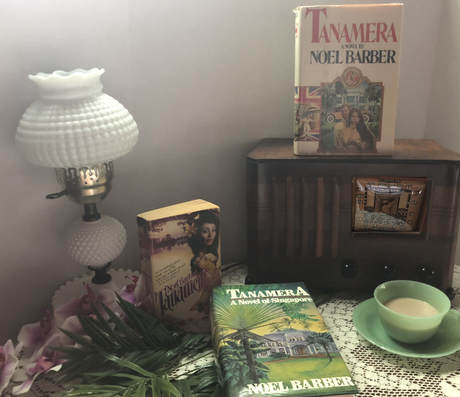 NOTE: I realize this is exceptionally long for a blog entry - they will not all be anywhere near this long, I promise! It was the summer before my senior year in high school, and I was working in a Waldenbooks in a local mall. So 1980s! I might have been wearing my favorite lilac Polo shirt and Guess jeans, but then again, that’s probably authorial license given the passage of time. The truth is I don’t remember what I was wearing, but I distinctly recall that while unpacking new hardback books for a display, I was immediately drawn to the cover of Noel Barber’s A Farewell to France. Waldenbooks allowed employees to borrow books, so long as they were returned in “saleable condition” (I doubt consumers would have been too excited to know this). After devouring this novel over the course of a weekend, I realized several things. One, I would not be returning this book, but would instead pony up a hefty amount of one of my paychecks to pay for it (quite probably the first hardback book I ever bought). Two, I needed to find more books by this author. Three, somewhere inside me welled up an unexpressed desire to read more fiction like this, a desire that is now reshaping itself into a need to write novels set in the dramatic years of WWII. So, acting on my second thought above (finding more books by this author), I searched the shelves, and miraculously, my store in fact had a single copy of Barber’s first novel. Unbeknownst to me, this novel was already difficult to find and had been released two years prior: Tanamera. So while Tanamera wasn’t the first Noel Barber novel I read, it was my favorite. With the hindsight of decades, I can say that it significantly influenced my reading and writing in many ways. I decided an exploration of why this book has so captivated me for the decades that have passed since Irene Cara’s “Flashdance” was the Number 1 song in America was the perfect topic for my first blog.
1 Comment
|
AuthorI'm the author of historical romances set during WWII. Archives
February 2024
Categories
All
|
 RSS Feed
RSS Feed